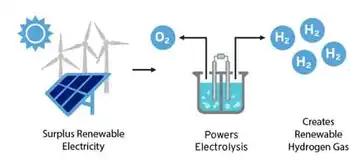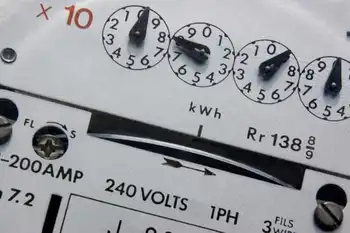Wal-Mart not sold on Duke solar plan
By East Bay Business Times
NFPA 70e Training - Arc Flash
Our customized live online or in‑person group training can be delivered to your staff at your location.

- Live Online
- 6 hours Instructor-led
- Group Training Available
The nationÂ’s largest retailer, which has 128 stores in North Carolina, contends DukeÂ’s intention to draw power for panels that would be built on customer homes and businesses could interfere with its own plans to tap solar energy.
Wal-Mart’s key complaints are that Duke intends to own all the solar equipment that produces energy for the electric grid in its service area. It does not intend to allow customers — Wal-Mart, for example — to keep any of the energy produced by their own systems.
“Duke’s proposal would completely pre-empt the field of solar generation in its service territory and extend Duke’s monopoly to include that business,” says Ken Baker, Wal-Mart’s senior manager on sustainable energy, in testimony filed with the N.C. Utilities Commission.
The commission has been collecting testimony in preparation for hearings on the program next week. Wal-Mart was the only large commercial customer to voice opposition.
But North CarolinaÂ’s public advocate is also recommending significant changes. The commissionÂ’s public staff contends the program is too big, too expensive and a bad deal for customers. It recommends state regulators cut the program in half and limit the costs Duke recovers through riders that allow price hikes without a full hearing on base rates.
Alternative-energy advocates and businesses find much to praise in the program, according to filings made in the case last week. But all find some fault with it and recommend changes.
Duke spokeswoman Paige Sheehan says Duke has called for an aggressive initiative for producing solar energy in cooperation with customers. She says the interested groups have made points that Duke is willing to consider, and the utility looks forward to answering their questions.
But Duke believes the proposal is a good one, Sheehan says. And she notes it is designed to do more that just produce energy from renewable sources. Duke hopes to encourage research in solar options and learn how to effectively tap opportunities for small-scale production of renewable energy.
Duke would own and maintain the panels attached to homes and businesses, either on rooftops or on the ground.
Wal-Mart says it has an interest both as a Duke customer and as a company interested in its own renewable energy program. The discount retailer already has or is installing photovoltaic units at 22 stores in California and Hawaii. It says it is interested in expanding the program. But it says DukeÂ’s proposal would limit its opportunities in the Carolinas.
If Duke places solar panels at a home or business, it would pay a fee for the use of the property. But customers would get no direct benefit from the energy produced.
Also, the customer would have to turn the renewable energy credits granted for the site to Duke. That is not a small consideration. In North Carolina, and around the country, there is expected to be a healthy market in such credits. Energy companies can meet part of their renewable-energy requirements by buying such credits.
That is part of what makes many renewable-energy projects possible for non-utilities. Solar electricity remains more expensive to produce than energy from traditional sources. But that difference can be reduced, or offset, by the sale of credits.
Duke treats the proposal as a single plant with 20 megawatts of capacity, even though it will actually be produced at about 850 sites.
That would produce 30,000 megawatt hours of electricity per year, about enough to run 2,600 homes.
The public staff argues that is a lot more than the capacity Duke needs to meet its requirements for solar energy under standards the General Assembly adopted last year.
Duke will be required to produce at least 11,350 megawatt hours of electricity from solar power in 2011, the year it hopes to finish the $100 million project.
But it will also be selling energy from a 21-megawatt solar farm being built in Davidson County by SunEdison. That plant will produce about 30,000 megawatt hours of electricity.
Even when the solar requirements increase in 2012, Duke is expected to produce just 40,461 megawatt hours per year through 2014. The SunEdison and rooftop solar projects would produce about 60,000 megawatt hours.
While producing more solar energy might seem desirable, the public staff sees some problems. The biggest involves the costs for the rooftop project. Solar energy is more expensive to produce than other alternatives Duke has, say the staffÂ’s executive director, Robert Gruber, and staff attorney Robert Gillam.
And that leads to a second problem, they say.
The General Assembly set annual caps on how much a utility can spend on alternative-energy sources. If Duke pays too much for its solar power, Gruber and Gillam say, it could reach those limits early, cutting off the opportunity to buy additional energy from renewable sources.
The actual prices are excluded from the public version of the staffÂ’s filing. But it is clear from the context that Duke will be able to sell energy from SunEdison at a lower cost than it will from its own rooftop generators.











